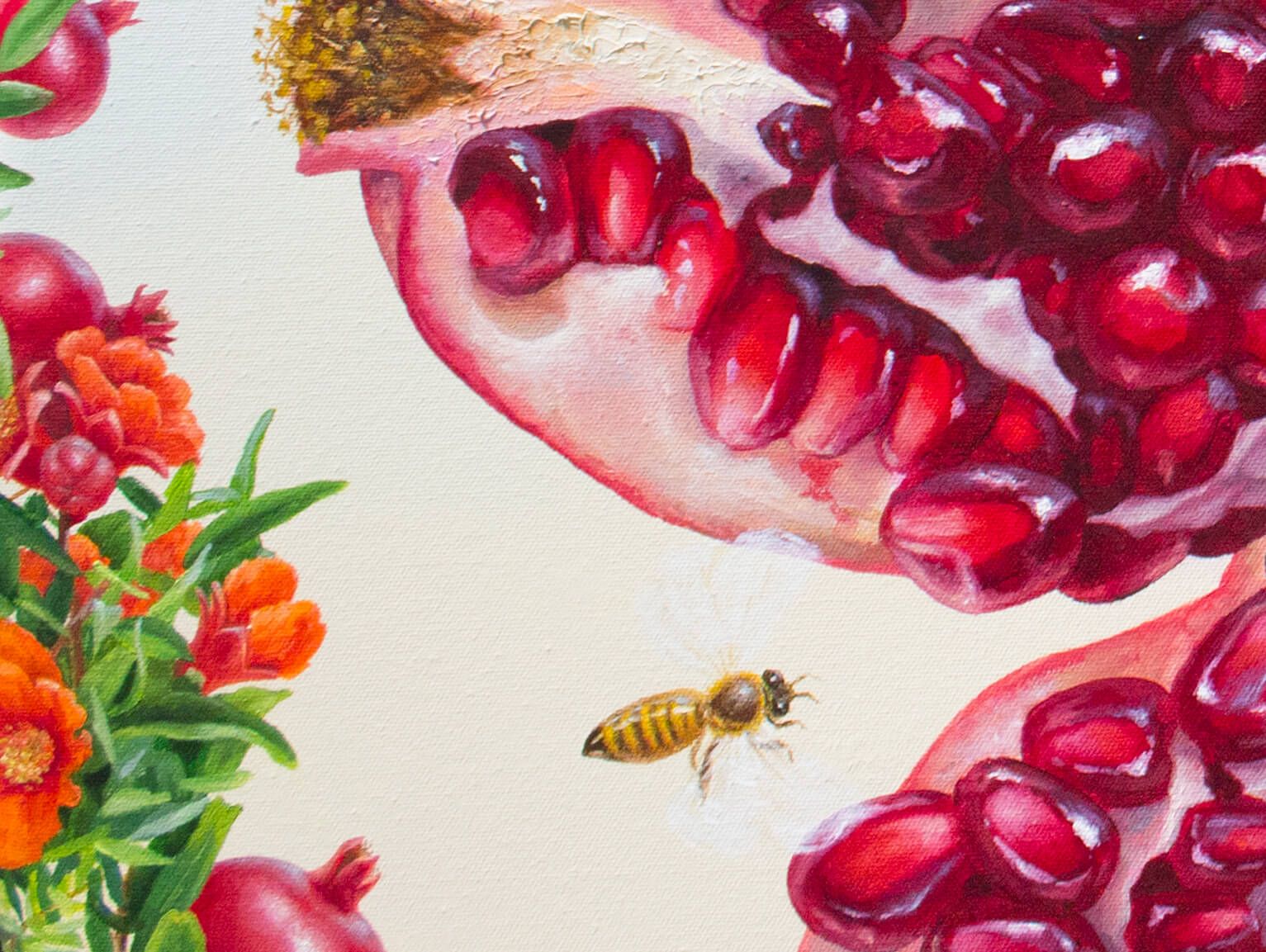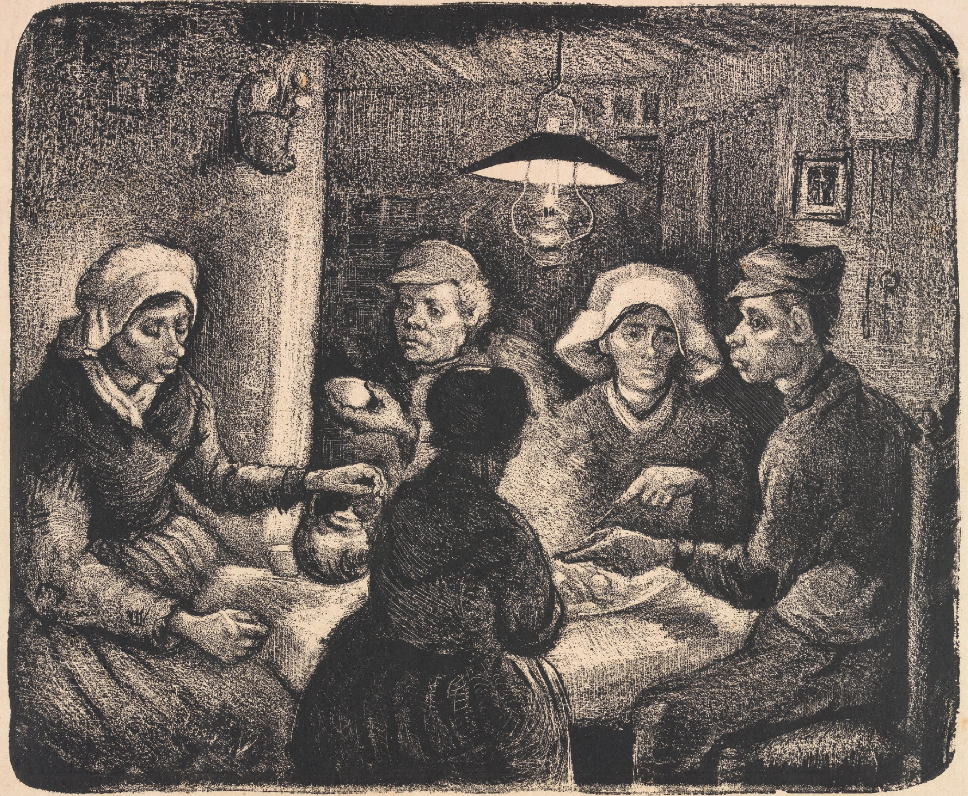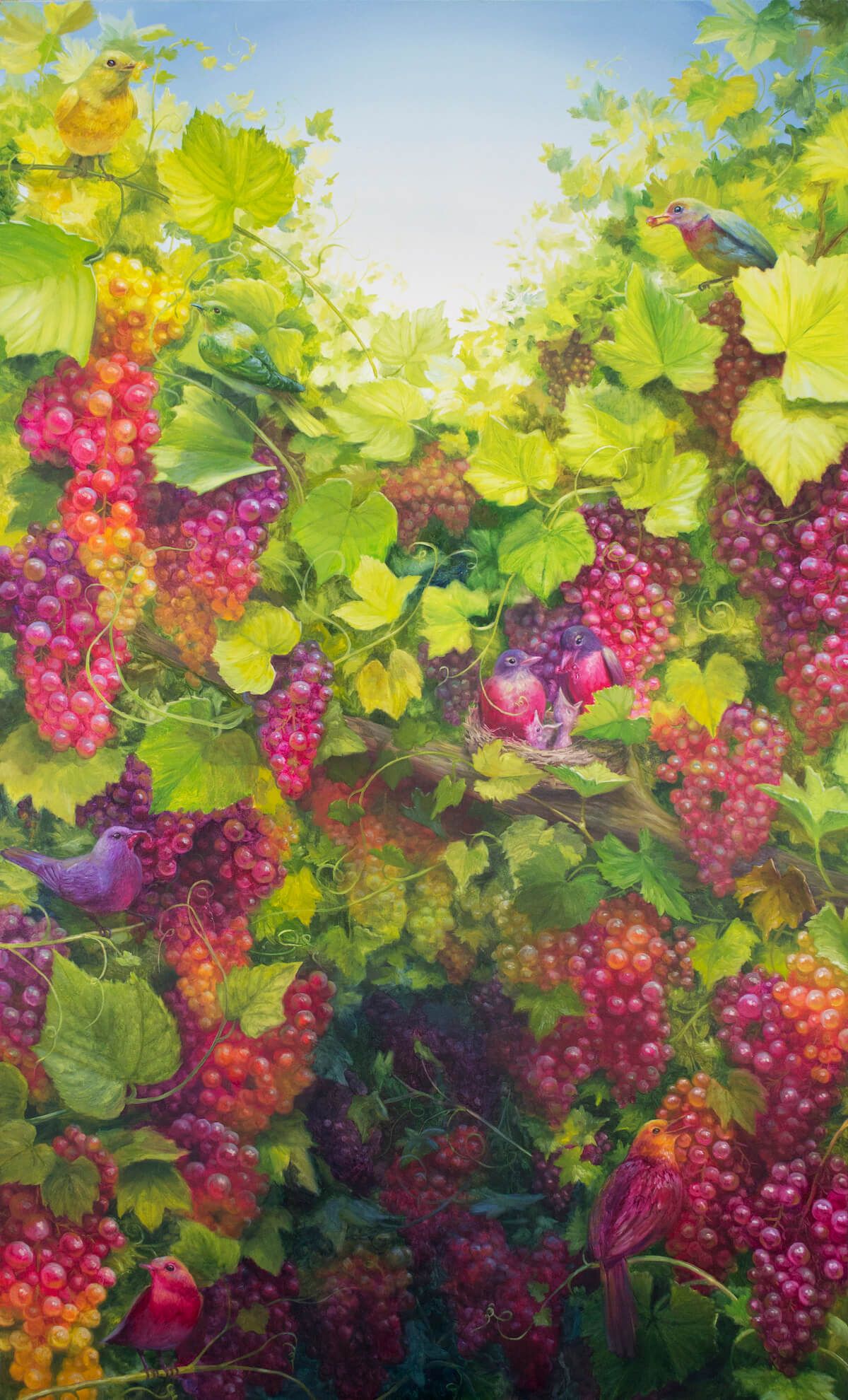An Accident Befalls the Date-picker
Folio from the manuscript of Kulliyat (Collected works) by Sa‘di (ca. 1200 - 1292). India, Agra, ca. 1604. Opaque watercolour, ink, and gold on paper. 41.8 x 26.2 cm. The Aga Khan Museum, AKM284.11
Food is not only a basic necessity to keep our bodies fuelled but it can give us endless pleasure and even serve as therapy, especially when shared with those we love. And yet, often we enjoy our food just that little bit too much, that little bit too often – with adverse consequences not only for our bodies and our health, but ultimately even for our planet. This delicate painting visualizes a moralistic story that warns of the dangers of being that ‘little too’ obsessed with food. It comes from Sa‘di’s Bustan (Orchard), a famous part of his Collected Works written entirely in verse and consisting of colourful, yet thought-provoking anecdotes designed to remind Muslims of the need for justice, tolerance, modesty, and contentment. Here, the painter references the Story on the Depravity of Gluttons, in which Sa‘di recalls visiting a date grove in Basra in the company of a group of wandering mystics, one a known glutton - a voracious, greedy eater in constant search for food. Seeing the tall date palms laden with fruit, he tucked up his tunic and climbed up one of the trees to reach them, only to fall down headlong and die instantly. When the village chief comes by and sees the man lying dead, he demands to know who killed him, but Sa‘di tells him it was not them but the man’s massive stomach that dragged him to his death, reminding all those present that focusing on the desires of one’s stomach only brings problems and is ultimately unpious.
Sa‘di cared deeply about gifting his stories, and interestingly he, too, uses food as a metaphor in this context. In his introduction, the poet tells us that through his poetry and literary anecdotes, he wishes to share his life experiences, gathered on the road as he moved around the Muslim world most of his life, displaced in the wake of the Mongol invasions in the early 13th century. Sa‘di wants to gift them much like travelers bring sweets and candies from their travels for their friends, and compares his verses to dates encrusted with sugar, with a stone – his metaphor for the kernel of wisdom, insight and truth - revealed inside when opened.
Written by Special Guest Contributor
Dr. Ulrike Al-Khamis, Director and CEO at the Aga Khan Museum, Toronto.
In each issue, we feature a special treasure from the Aga Khan Museum, one that tells a story, captures a moment and inspires conversation.


